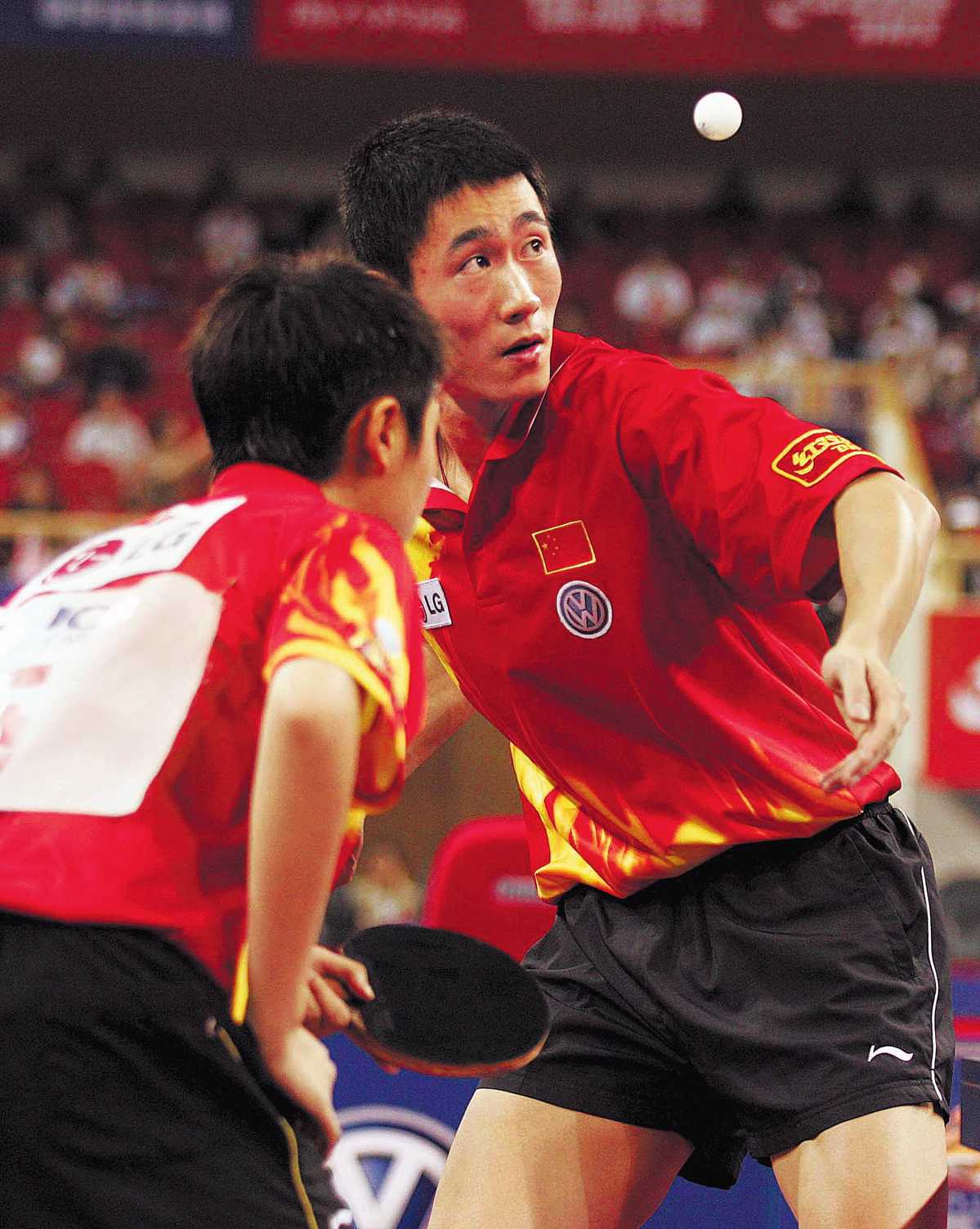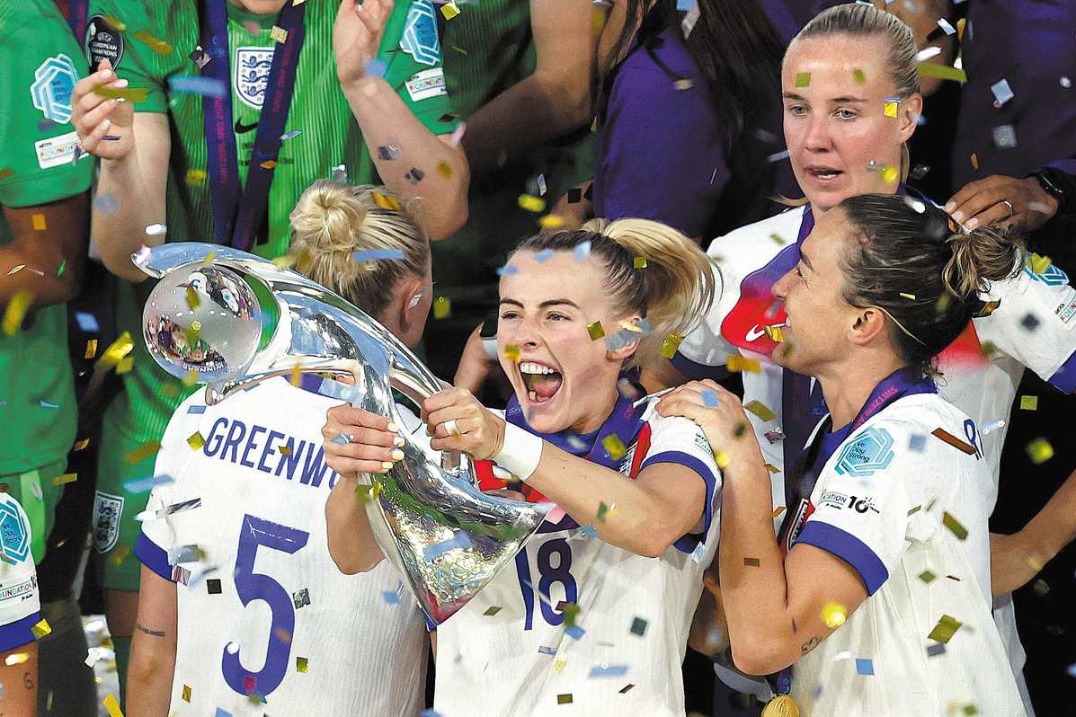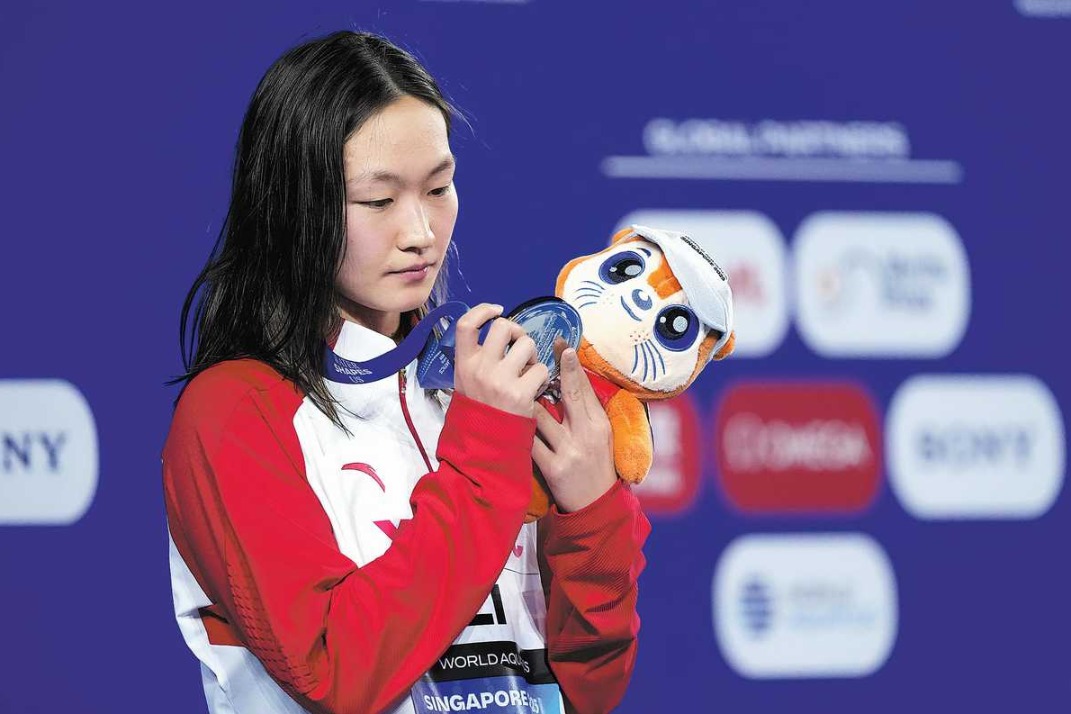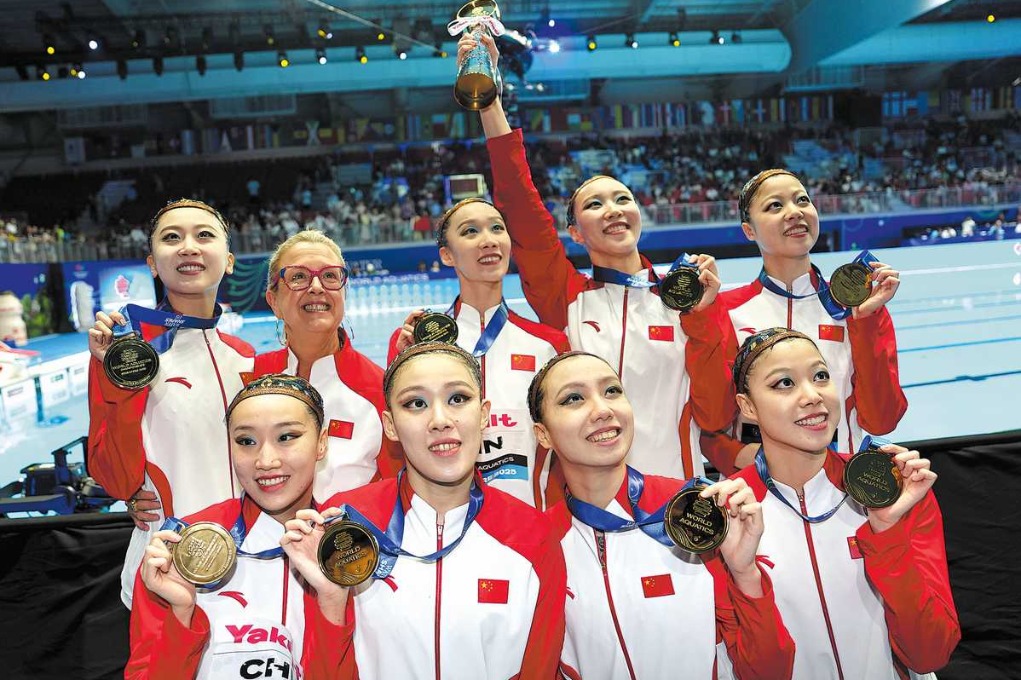Together we stand
Wang keen for China's paddlers to put national pride above personal fame


Storied career
During his playing career, Wang claimed 16 world championship titles and, alongside teammates Ma Lin and Wang Hao, helped usher in a golden era for Chinese table tennis.
After retirement, both Ma and Wang Hao transitioned into coaching, and now guide the national team. Wang Liqin, however, chose a different path — one that was more centered around the sport's administration.
He began as assistant director of the Shanghai Table Tennis and Badminton Center, later rising to director. In 2018, he was appointed vice-chairman of the CTTA, before eventually assuming the role of chairman last month.
When elected president of the 11th Council of the Shanghai Table Tennis Association, Wang emphasized the importance of grounded leadership: "Only through research can we earn the right to speak. Solving real problems starts with investigation and study — then we can craft specific strategies to tackle key challenges," he said.
"The same applies to the work of the association: We must listen more to table tennis enthusiasts, and learn from their feedback and ideas. That way, our policies will be targeted and effective, not just impulsive decisions made in a vacuum."
But, with glory comes responsibility. China's table tennis legacy now demands not just preservation, but evolution — with foresight and finesse.
His immediate task is preparing for the 2028 Los Angeles Olympics, where changes to the competition format require some strategic recalibration.
Internally, he must manage a generational shift — nurturing emerging talent, while guiding veterans through the transition. Externally, rivals like Japan, Germany and Brazil are gaining ground, with their athletes increasingly capable of challenging China's dominance.
Yet, one of Wang's most pressing, and perhaps most delicate, tasks lies off the court — addressing the growing influence of "fan culture" in Chinese table tennis.
In recent years, the celebrity of individual players — often bordering on idolatry — has sparked concerns about distractions, undue pressure and the erosion of collective discipline.
Wang Liqin's approach seems clear: to re-center the team as a whole, reinforcing humility, and place national pride above personal fame.
His leadership style, grounded and team-oriented, reflects his own playing days — marked by consistency, composure, and an unshakable focus on the bigger picture.
Most Popular
- IMG ace Eisenbud nets leadership role at WME Sports agency
- As records tumble, Women's Euros achieves its goals
- Kelly delivers England a second European crown
- Li looks for ripple effect
- Imperious Pogacar claims fourth Tour de France victory
- Qin claims gold, Yu wins hearts at aquatics meet





























